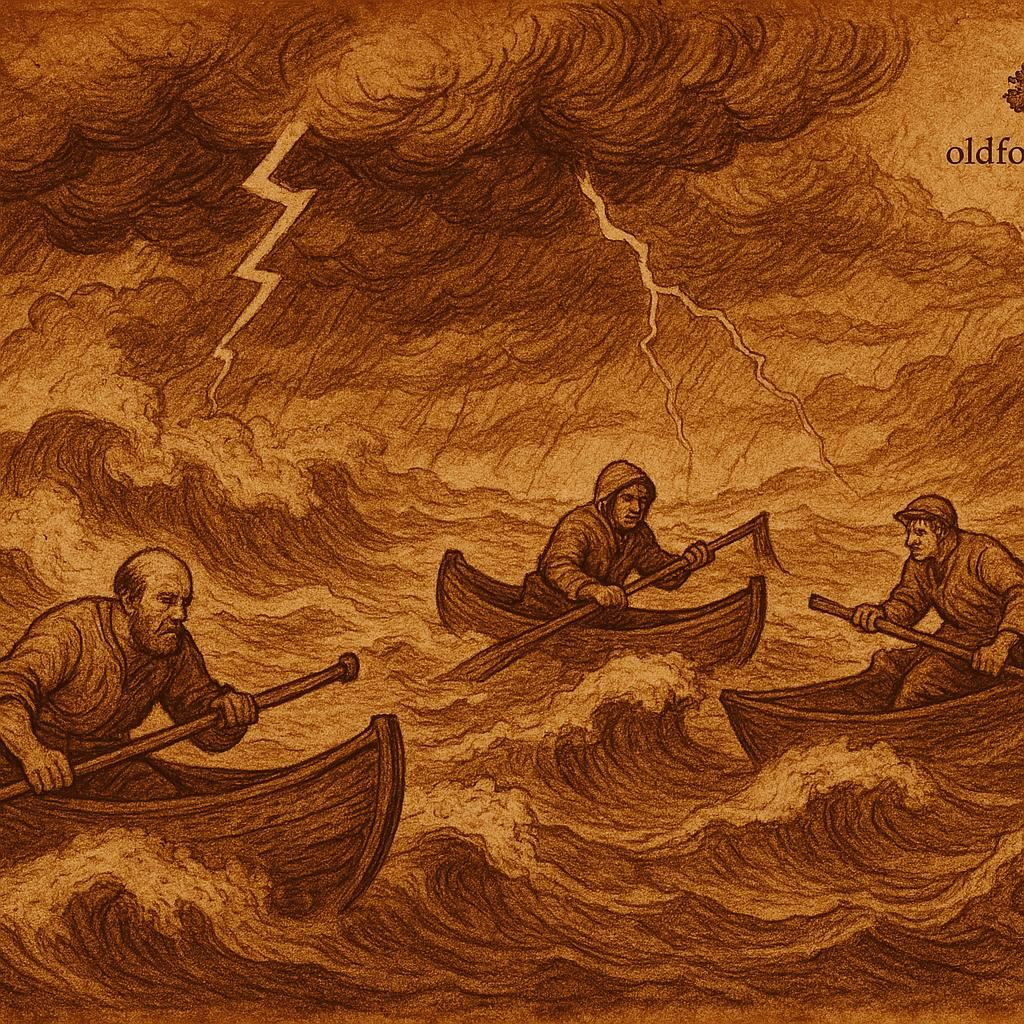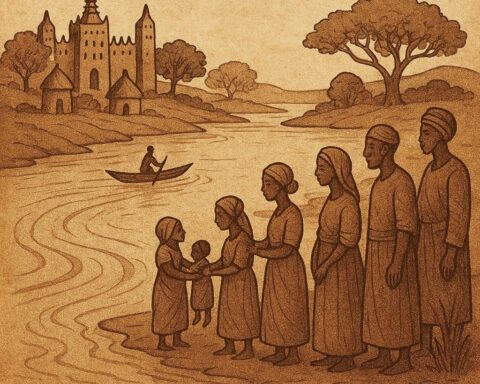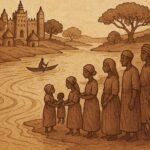Long ago, when the Baoulé people first settled near the shimmering waters of Lake Kossou, the lake was both a blessing and a mystery. Its surface glittered like glass under the sun, and its depths held fish so plentiful that no family ever went hungry. Yet the elders warned that the lake was alive with a spirit older than the people themselves. They taught that the waters must be respected, for the spirit gave generously but could just as easily take everything away.
At first, the fishermen of the village honored these words. Before launching their carved wooden canoes, they poured a little palm wine into the lake as an offering. Before casting their nets, they spoke quiet prayers to the spirit. When they caught fish, they took only what their families needed and left the rest to swim freely. For many years, life was peaceful, and the lake sustained them.
READ THIS :The Trickster Monkey of the Dan People
But as time passed, new generations grew bold and careless. The young fishermen laughed at the old ways. They mocked the offerings and ignored the words of the elders. “The lake is wide, and the fish are endless,” they said. “Why should we limit ourselves when there is so much to take” They began to cast larger nets, catching far more fish than they could eat or trade. Many were left to rot in the sun, wasted. The villagers watched with unease, but the greedy fishermen would not listen.
One evening, a group of these men set out on the lake with great baskets, determined to bring back more fish than ever before. The water was calm, the moon cast a silver path across the surface, and the men laughed loudly as they filled their boats. Their nets grew so heavy that the canoes sank low into the water. “See how foolish the elders are,” one shouted. “The lake gives and gives. There is no spirit here, only fish for us to take.”
At that moment, the air grew heavy and still. The laughter died on their lips. From the center of the lake, ripples spread across the surface though no wind stirred. The ripples swelled into waves, and the waves rose into a sudden storm. Lightning cracked across the sky, and the lake churned like a pot over fire.
Through the rain and the roar of thunder, a shape rose from the waters. It was tall and luminous, half human and half wave, with eyes that glowed like burning coals beneath the storm clouds. The fishermen trembled, for they knew the spirit of Lake Kossou had awakened.
A voice boomed like thunder: “I gave you fish to feed your families. I gave you calm waters for your boats. Yet you have mocked my gifts, taken more than you need, and wasted what others depend upon. Your greed dishonors me, and for this, you will learn respect.”
The men cried out, begging for mercy, but the storm only grew stronger. Waves smashed against the canoes, overturning them one by one. Nets tangled around the men’s arms and legs as they struggled. Some were swallowed by the dark waters, never to return. A few managed to cling to floating wood and were carried back to shore, shivering and broken.
When the survivors staggered into the village, the people gathered to hear their tale. With trembling voices, they confessed what they had done and how the spirit of the lake had punished them. The elders nodded gravely, for they had always known the lake must be treated with reverence. From that day forward, no one dared to waste fish or mock the rituals. Offerings were once again made before each fishing trip, and only what was needed was taken from the waters.
The story of the water spirit spread from village to village. It was told around fires and in gatherings so that children and grandchildren would never forget. Lake Kossou was still generous, but its people had learned the truth: nature must be respected, and greed brings only ruin.
Moral Lesson
This folktale teaches that nature’s gifts are not endless and must never be taken for granted. Respect, gratitude, and moderation keep harmony between people and the natural world. Greed and waste, however, invite destruction.
Knowledge Check
What lesson does The Fishermen and the Water Spirit of Lake Kossou teach about nature
Answer: It teaches that nature must be respected and that greed and waste lead to ruin.Why did the elders warn the fishermen before they went to Lake Kossou
Answer: The elders taught that the lake had a spirit that must be honored to keep balance and blessings.How did the fishermen dishonor the spirit of Lake Kossou
Answer: They ignored traditions, caught more fish than needed, and allowed much of their catch to rot in waste.What happened when the fishermen mocked the lake spirit
Answer: A violent storm rose, their boats were overturned, and many of them drowned.What did the survivors of the storm do when they returned to the village
Answer: They confessed their greed, admitted their mistakes, and warned the community to respect the spirit of the lake.How is this folktale relevant to the modern world
Answer: It reminds us that misuse of natural resources can lead to disaster, just as it did for the fishermen of Lake Kossou.
Source: Baoulé folktale, Côte d’Ivoire. Preserved in oral traditions about water spirits and recorded in regional ethnographic studies.



